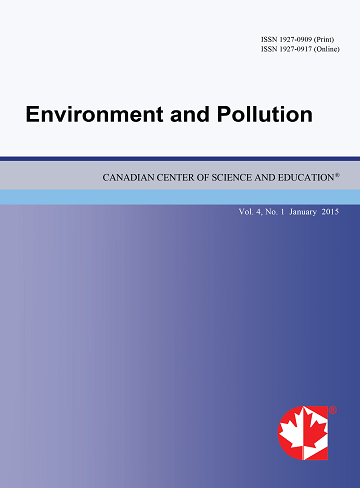Assessment of Drinking Water Quality of Groundwaters in Bunpkurugu-Yunyo District of Ghana
- Maxwell Gyampo
- Musah Zango
- Boateng Ampadu
Abstract
Water quality assessment of nineteen (19) boreholes sampled during the two climatic regimes (raining and dry seasons) in Bunkpurugu-Yunyo District of Ghana has been carried out using standard methods. Analysis of results showed that all the parameters fell within World Health Organisation (WHO, 2008) acceptable limits with exception of turbidity, nitrates, lead and cadmium. The order of major cations and anions in water samples obtained during the raining and dry seasons were Na>Ca>Mg>K and HCO3>NO3>Cl>SO4>F>PO4, and Na>Ca>K>Mg and HCO3>Cl>SO4>F>PO4>NO3 respectively. Groundwaters were fresh (TDS< 1000mg/l) and generally of temporal hardness. High mean values of Pb and Cd above acceptable limits implied potential health hazards to inhabitants over a long period of water consumption. Agro-chemicals could be the major sources of Pb and Cd contamination to the groundwaters while the potential of contamination from natural sources may be a possibility. Assessment of water quality index (WQI) showed remarkable variation of water quality with respect to climatic conditions, with 94.7% samples falling within “Excellent” and “Good” categories in the raining season while conversely, about 89.5% fell within “Poor” and “Unsuitable” categories during the dry season.
 PDF
PDF
